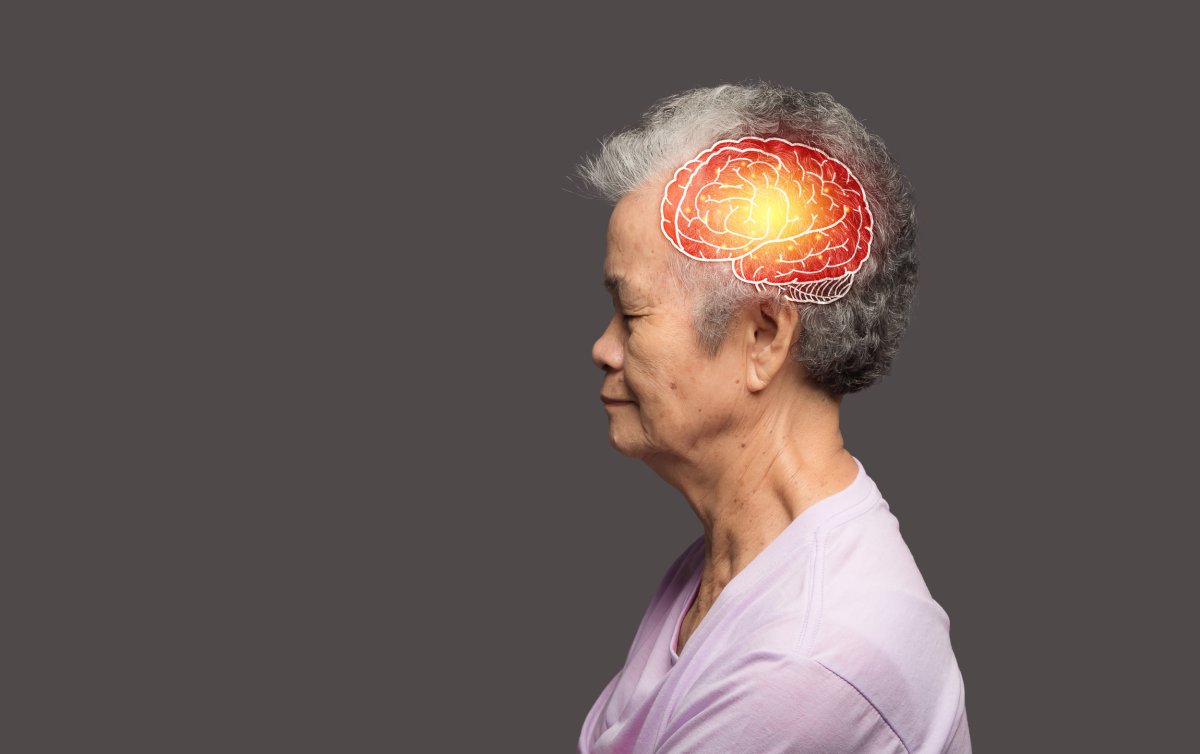The onset of symptoms of Alzheimer's disease can occur and worsen quicker in people that also have an alcohol use disorder (AUD), a new study has revealed.
According to the scientists based at Scripps Research, changes can be made in the brain that lead to more inflammation, and disrupt normal communications inside cells.
Nearly seven million Americans have Alzheimer's disease, and this number, according to some experts, will double by 2060.
The most important factors in triggering Alzheimer's are a person's age and genes, scientists say, but evidence is now being uncovered that a person's lifestyle—including whether they drink alcohol to excess—can also be factors in triggering the onset and progression of the disease.
"The overall evidence, both from lab experiments and human observation, supports that alcohol likely promotes onset and progression of Alzheimer's disease," said Pietro Paolo Sanna, MD, a professor in the immunology and microbiology department at Scripps Research told Newsweek.
"We found several cell-type-specific genes and pathways that are dysregulated in both Alzheimer's disease and alcohol, which supports the hypothesis that alcohol use disorder can accelerate Alzheimer's disease progression by impinging on some of the same molecular mechanisms that are affected by Alzheimer's," said Professor Sanna about the research published in eNeuro.
The Scripps scientists analyzed genetic information from hundreds of thousands of individual brain cells from 75 patients with early, intermediate or advanced onset of Alzheimer's disease, as well as 10 patients who did not have the disease. They then compared this information with genetic information from previous research on the brains of people with AUD.

"We think that alcohol and Alzheimer's disease impinge on overlapping biological processes involving many genes and cell types in the brain," said Professor Sanna.
"Previous experimental research studies from our lab as well as others also support this view, and this study begins to extend this type of study to humans."
The research showed that similar genetic changes take place in the brains of people with AUD and Alzheimer's. These include promotion of genes that produce inflammation, interfering with the normal signals that tell cells to die, and making damaging changes to blood vessel cells.
"What we've presented here is a differential analysis of two disorders that cause cognitive decline," said Dr. Arpita Joshi, Ph.D., another researcher who took part in the study, also of Scripps Research.
"It deepens our understanding of Alzheimer's disease and what the three clinically defined stages of Alzheimer's entail, and it underscores the importance of considering alcohol use disorder as a risk factor for Alzheimer's."
"This is a global effort to unravel complex diseases at the single-cell level, which will lead to a better understanding of the molecular and cellular perturbations in individuals with Alzheimer's disease, alcohol use disorder and their interactions," said Dr. Joshi.
"It deepens our understanding of Alzheimer's disease and what the three clinically defined stages of Alzheimer's entail, and it underscores the importance of considering alcohol use disorder as a risk factor for Alzheimer's."
The study was based on a relatively small number of patients, and the researchers want to repeat their work next year, using genetic data from a larger number of individuals with AUD. Meanwhile, the researchers say that excessive alcohol consumption is best avoided for healthy aging.
Reference
Joshi, A., Giorgi, F. M., & Sanna, P. P. (2024). Transcriptional Patterns in Stages of Alzheimer's Disease Are Cell-Type–Specific and Partially Converge with the Effects of Alcohol Use Disorder in Humans. eNeuro, 11(10).
https://doi.org/10.1523/ENEURO.0118-24.2024




















 English (US) ·
English (US) ·